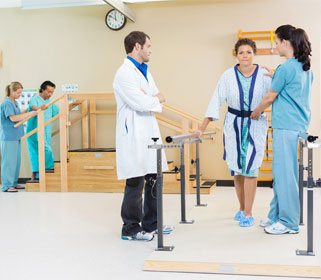Home » Medical Supplies & Equipment » About the Spirometer » About the Spirometer
About the Spirometer
Breathing is important, but breathing well is more important which is why many people turn to spirometers for help. Most of us don’t realize that when we are upset, we tend to breathe more shallowly, thus bringing in less air. But this action is actually cutting off the oxygen flow to the rest of our body, making us dizzy and disoriented at times. To help us find out just how well we're breathing, we can use a spirometer to help gauge our progress and to see whether we might need medical attention.
What the Spirometer Does
By working with air pressure, a spirometer measures your lung capacity by having the patient breathe into a tube that then moves a measuring device up and down a cylinder that's labeled with different volume measurements. The higher you can get that measurement to be, the better your lungs are expanding and able to take in oxygen. Many times, surgical patients will be given spirometers after their surgery to gauge their health and to alert the nurses and staff of any respiratory problems.
How You Can Use a Spirometer
People who have had breathing troubles in the past can benefit from regular testing of their lung capacity – under the supervision of a doctor, of course. All you need to do is to put your lips to the tube and then exhale all the air you can through your nose and then breathe in slowly and evenly. If you breathe in too fast, it can make the measurement higher than it actually is. Do this a few times to take the overall average of the measurements to see how your lung capacity is right now based on the spirometer's measurement. You can use this device sitting up or standing up, whatever's most comfortable. Most people will be able to get a better reading when they're standing up, as it's simpler to expand your lungs in this position.
What You Can Tell with Spirometers
If you've had surgery or lung clots, for example, you will be able to tell just how far the healing has come by regularly checking your breathing. In the beginning of a lung clot issue, for example, the pain can make it difficult for you to complete a full breath, but as the blood thinners work on the clots, breathing becomes easier and your lung function can return to normal. What you should know too is that these are simply diagnostic devices – they won't actually help your lungs grow stronger.
You might be sent home with a spirometer if you've had surgery or your doctor is concerned about your breathing. Check your breathing as often as you've been instructed and follow the directions closely.
Spirometers can help you take an active role in your health and in your recovery. Even if you only use your spirometer on occasion, it's something that can help you track your lung capacity during an intense training regiment – like running. The more you exercise, after all, the better your lungs will work.













